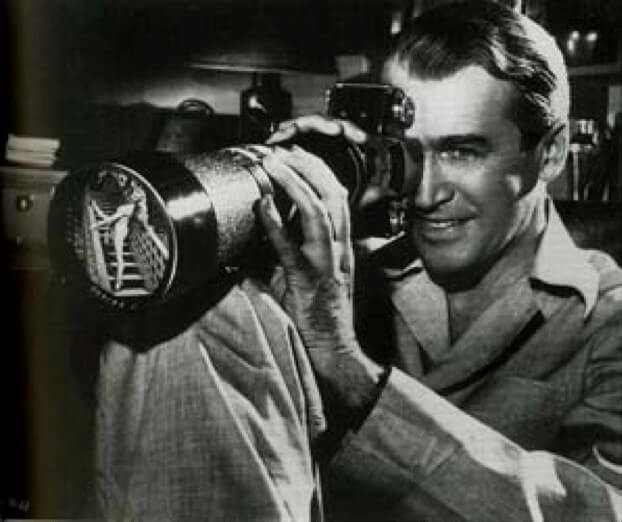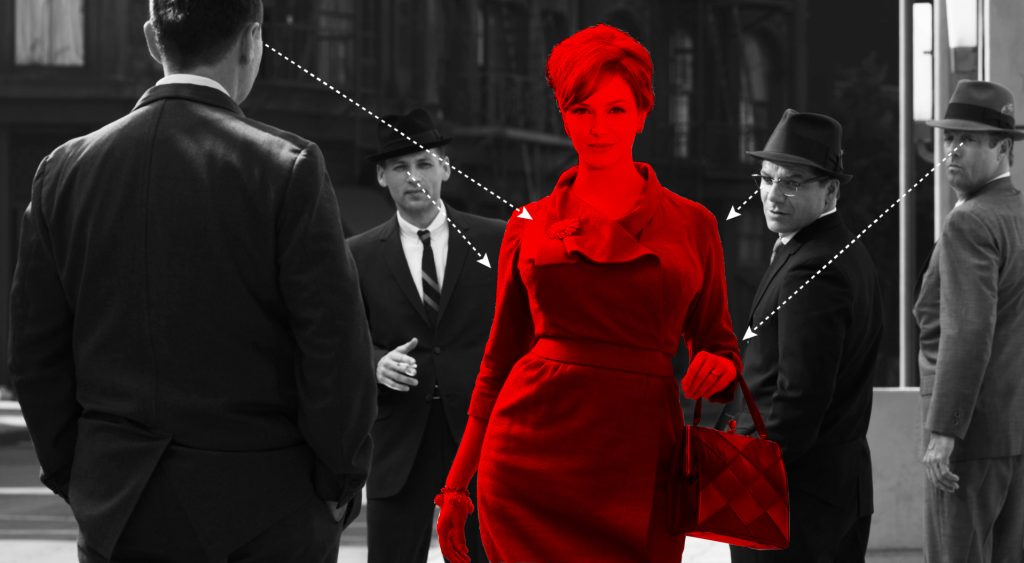
Art critic John Berger once said that women’s grooming and self-expression in public space is not really up to them – “Men act, women show. Men look at women, women look at themselves being looked at by men.
Should I wear a bra on a hot day, should I wear make-up when I go out? How to walk, sit and stand up in a dress? How big should I open my neckline so that I don’t attract strange stares?
says “them”
The reason why girls have to worry about these issues, in Berg’s view, is because ‘seeing and being seen is a power relationship’, and the male gaze (male gaze) has always been at the top of the power hierarchy. It lurks in advertisements, popular culture, the lessons of parents and teachers, the rules of public space, and even one’s own expectations of oneself, influencing the way we (men, women, and children) dress, behave, and talk all the time.
A series of questions follow: how does the male gaze work in contemporary society? To what extent can women’s self-expression be free from the sway of the male gaze? Beyond the male gaze, how can we imagine a future where everyone is ‘born beautiful’?

Sociologist Pierre Bourdieu once pointed out that people’s recognition of beauty is not entirely subjective or free, but is wrapped up in the aesthetic consciousness of the times. The perception of ‘good looking’ is therefore socially constructed, and in human history, since men have mostly occupied more economic and cultural resources, the social construction of beauty has often been influenced by the ‘male gaze’.
Scholar A.W. Eaton in Feminist Philosophy of Art (2008) defines the male gaze as ‘the act of objectifying women as objects for sexual pleasure through the male gaze’.
In the male gaze, the female is often an object that lacks subjectivity, and the female body becomes the scene for the expression of the viewer’s sexual fantasies. As a result, the process of ‘gazing’ or ‘looking’ at women often becomes a process of fulfilling the male’s self-satisfied sexual fantasies. In this process, the viewer not only satisfies aesthetic pleasure, but also derives sexual pleasure from it.
Although the male gaze is ubiquitous, it is many times accomplished through ‘voyeurism’. Voyeurism does not have to be a sneaky act, such as peeking at a girl’s body on the underground. Film theorist Christian Metz has put forward the idea that voyeurism is actually the act of viewing that is primarily imaginative and supplemented by voyeurism.
Whether it is voyeurism or the process of self-identification, they all have one thing in common, which is that they embody the inequality of power relations. So the deeper crux behind the ‘male gaze’, which can be seen everywhere, is precisely the inequality of male and female genders.
If this is the case, does it mean that women no longer have the opportunity to take back their own aesthetic? The answer does not seem to be inevitable. A potential response to the male gaze is: if we imagine women as the gazers, will ‘aesthetics’ become freer and more empowering?
If this question is too specific, then perhaps we can take a step back and consider: to what extent is the management of the body under the ‘female gaze’ – such as wearing sexy clothes and blowing up in the street with the encouragement of one’s sisters – free and authentic self-expression?

The headache is that the male gaze is only the first layer of difficulty when it comes to ‘what women should do with their bodies’. The move from ‘a woman for herself’ to ‘a woman for herself’ hides the pitfalls of consumerism.
After all, in the rapidly changing aesthetic market, one of the indispensable conditions for “making oneself happy” seems to be buying. From cosmetics to clothing and even flesh, the gap between individuals and society in the contest of defining “beauty” is so wide that it is difficult for even the most radical feminists to persuade women not to buy without thinking or feeling guilty – – – – – – – – – – In the prevailing consumerism, women have to buy what they want, and they have to buy what they want. Even the most radical feminist would find it difficult to persuade women not to buy – after all, what else can you do if you don’t buy when consumerism is so prevalent?
Returning to the controversy: we can sense some challenges to the ‘male gaze’ from the ‘female gaze’, but we also realise that the female gaze does not seem to be completely independent of patriarchal culture. At least at the moment, the female gaze and the male gaze are like two curves, sometimes crossing, sometimes merging, sometimes facing each other, and sometimes having room for negotiation.
Between the two types of claims of the female gaze – the interchangeable ‘women gazing at ta man in the same way as the male gaze’, and the truly subversive, inclusive and free female gaze – finding a realistic balance between these two claims is not easy. easy.
But that’s why it’s all the more important to realise that no one can simply be judged as a spokesperson for ‘patriarchal culture’ or the ‘male gaze’. On the contrary, when the Internet’s criticisms lead us to distinguish between them, we should be even more vigilant and ask: what kind of social environment has pitted the two girls, who share a common interest in JK culture, against each other, and even made both of them subject to public criticisms?
Regardless of whether it is the “extreme opposition to male gaze policemen” or female models using their bodies as a medium, if we rethink from this point on, we may be able to reach a connection that transcends differences and is mutually beneficial to each other.

This post is very good, it brings in academic examples from scholars and professors that I didn’t even know about and the whole discussion is very easy to understand and grasp. The only thing worth mentioning is, I understand you were not making mentions of the male gaze in film, but just something to add next time, Mulvey is another example of someone who discusses the male gaze. The example you used from the show is also really good, it shows that it’s not all men that realise that this is a problem and that they will not sit and do nothing about it. Overall, a very good post with the perfect amount of description on the male gaze.